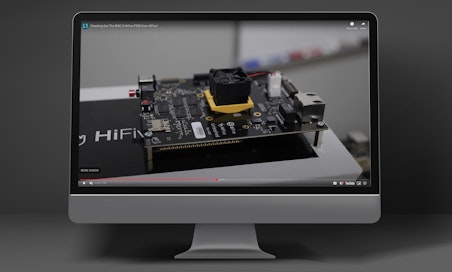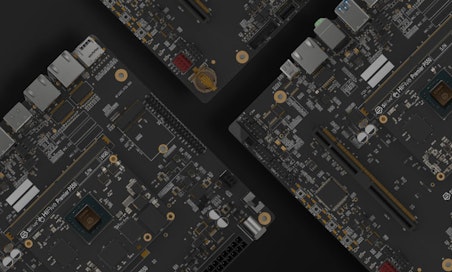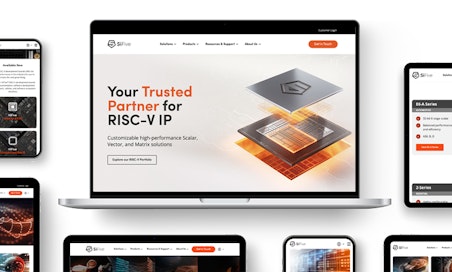SiFive Blog
The latest insights, and deeper technology dives, from RISC-V leaders

Women in Open Source: You DO Belong Here
Hi. I’m Megan. And I’m a woman working on RISC-V hardware.
The path that led me here is straightforward — I always pursued what sounded like the most fun and interesting path at the moment. I grew up in a family of engineers, with a mother who served as a wonderful role model. An engineer herself, she showed me that there’s nothing odd about a woman in tech. From a young age, my fascination with technology and how things work was deeply encouraged.
I learned by osmosis because the tools were all around me. During a string of snow days in high school, I taught myself how to write C programs by picking up a book off the bookshelf. I loved tinkering with a 75-in-1 Electronics Kit to make buzzers buzz and lights blink. There were chemistry sets, model airplane kits, sewing machines, and dolls to play with too, but it was clear to me then that electrical engineering is what I wanted to pursue through higher education.
I headed to Brown University, where I received my undergraduate degree in engineering while surrounded by people pursuing other passions. I was impressed that my entry level Engineering professor was a woman, and I noticed on my first day of CS class that half the teaching assistants were female. But as time passed, the gender gap grew, and looking around my classes it was tough to ignore that I was often one of just a handful of women in the room. As time passed, I can’t say this changed for the better.
After graduating from Brown, I was accepted at Stanford University, where I earned a PhD in Electrical Engineering. As I grew more and more confident in my own path, I confirmed that I wanted to develop hardware — because, to me, building something tangible is the most fun and interesting thing to do. Yet, I continued to become more frustrated with the lack of women in both academia and in the industry. I never understood why I was one of a few (if not the only) women in the room. My best hypothesis is that women are doing something that they find more exciting than designing computers, which means that our next generation of computers won’t truly live up to their potential. We need everyone to weigh in on what they’re needed for, as it’s not just playing games.
After receiving my degree and working in industry for several years, I heard about SiFive, a company whose foundation is open-source. While considering whether to join, I read this blog post from Toptal. It was a fascinating read that analyzed GitHub.com user data and found that women are even more underrepresented in open source than they are in STEM in general. While the article suggests several reasons why this might be the case, the hypothesis that resonated with me most was No. 4: “GitHub can be an unwelcoming community for female programmers.” It’s the sort of statement that can become self-fulfilling … If someone feels unwelcome because they’re afraid of being called out because they are underrepresented, they won’t join, making others of their group even less likely to join. But I would like to break the cycle and make it clear that the RISC-V community is open to all.
It would be nice for the world to acknowledge that gender isn’t relevant to someone’s contributions to a software or hardware project. You’d be one hundred percent right to believe that. From my perspective, as someone who weighed this decision myself, it does matter to someone considering joining a community. It does matter when you see a list of contributors, listen to a panel or see a photo from an event and don’t see a lot of people who look like you. A person could very well feel like she doesn’t belong.
It made me realize that being a part of a community that encourages all types of people to participate is where I wanted to be. And I’m here to state that the RISC-V community is open in every sense of the word. It’s an active, enthusiastic, supportive group that — above all — wants everyone to have access to free and open hardware and software. The RISC-V Foundation is so new that almost everyone is a newbie, and the culture of the community is still being formed.
We need all perspectives in the room. So join me — we’re hiring!
Check out this interview I did as part of ECN's Why I Became An Engineer series.











